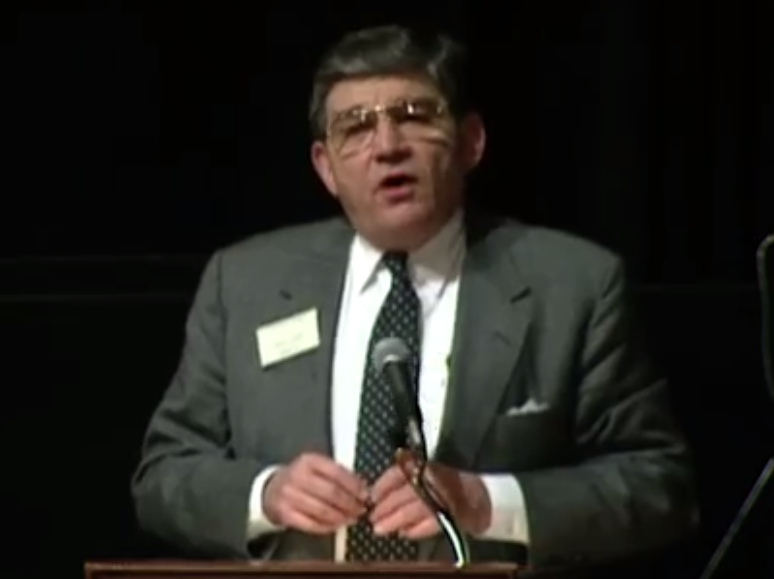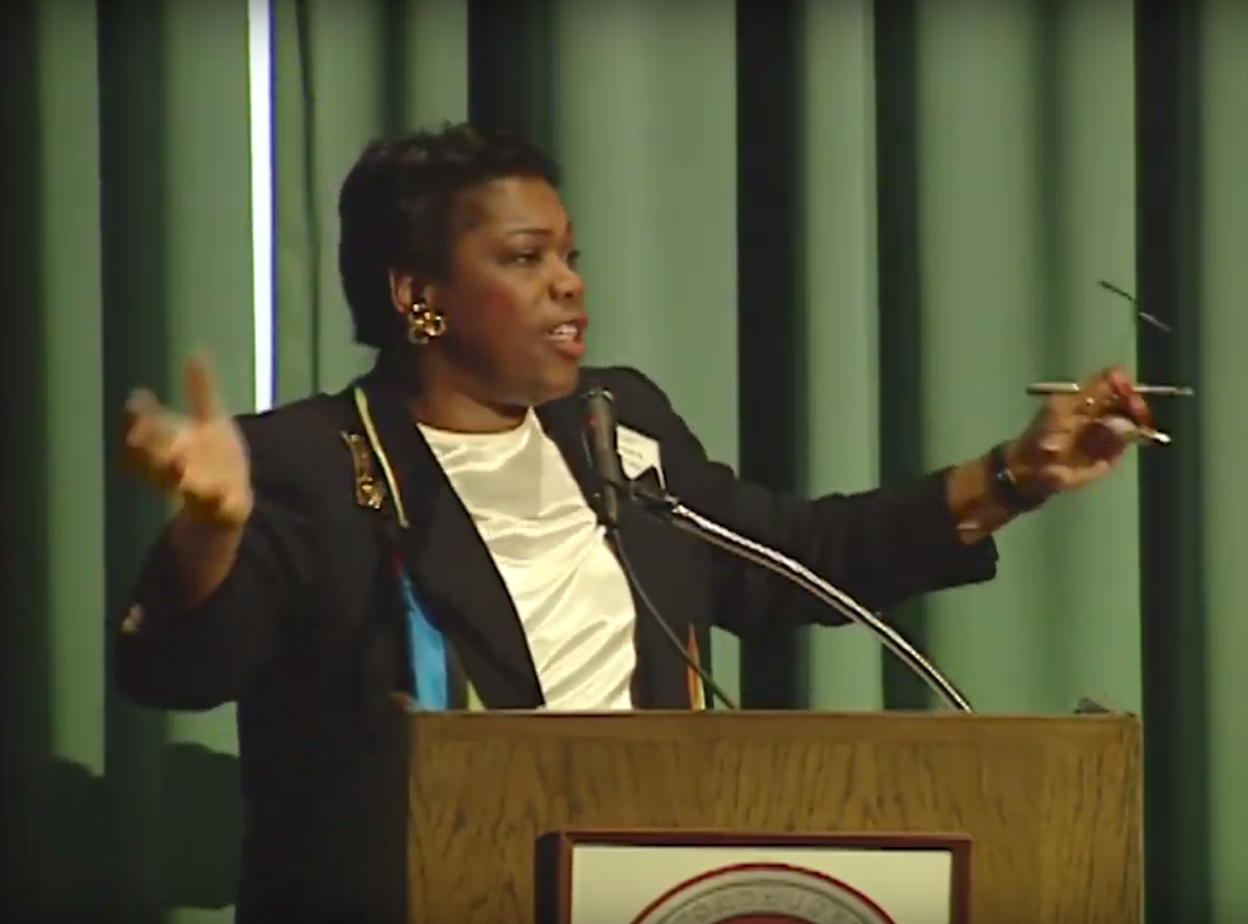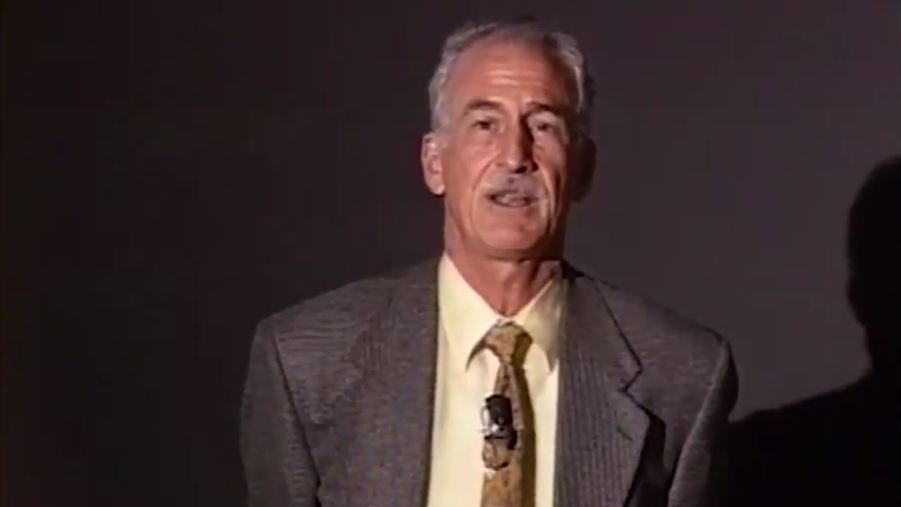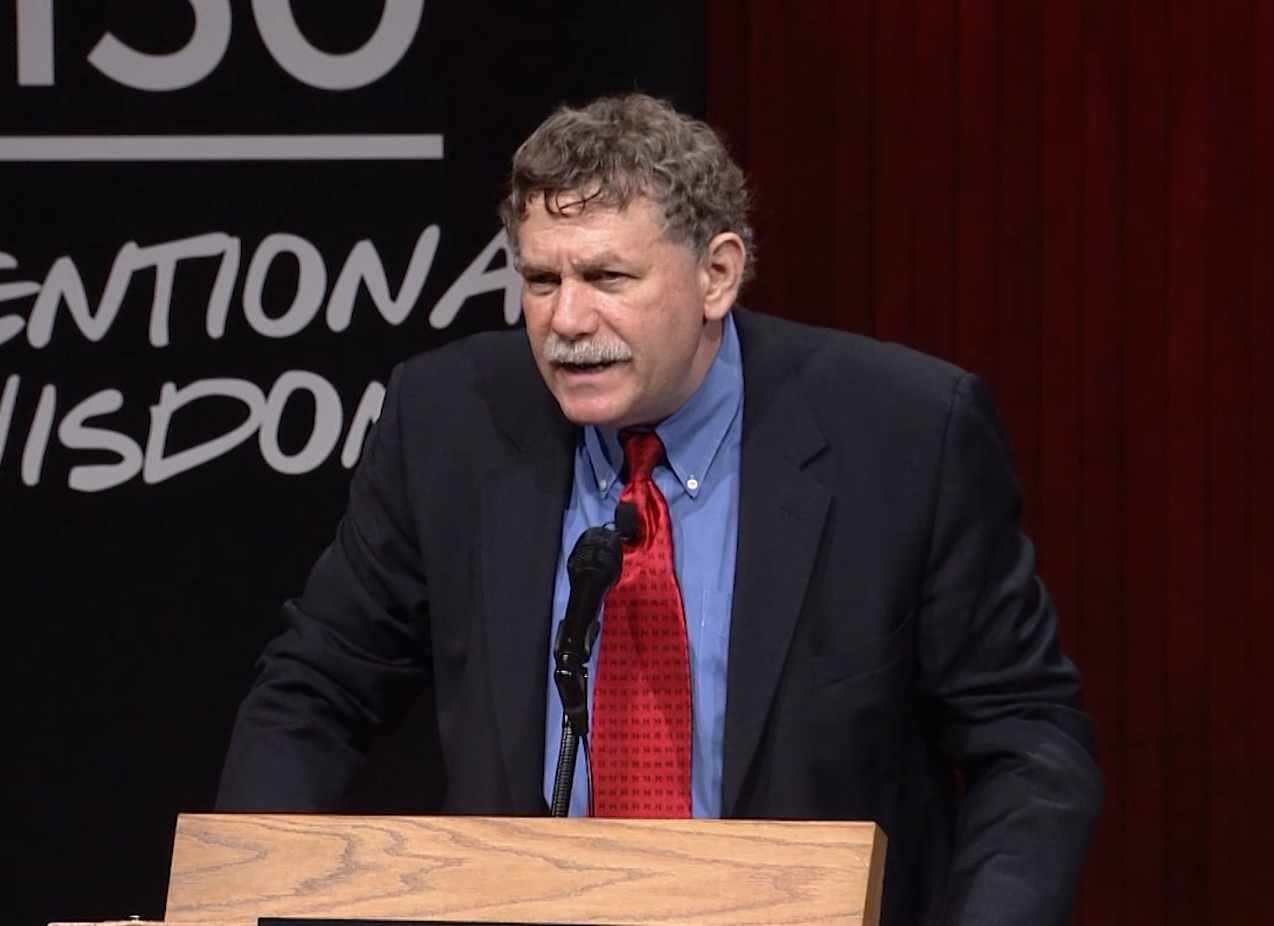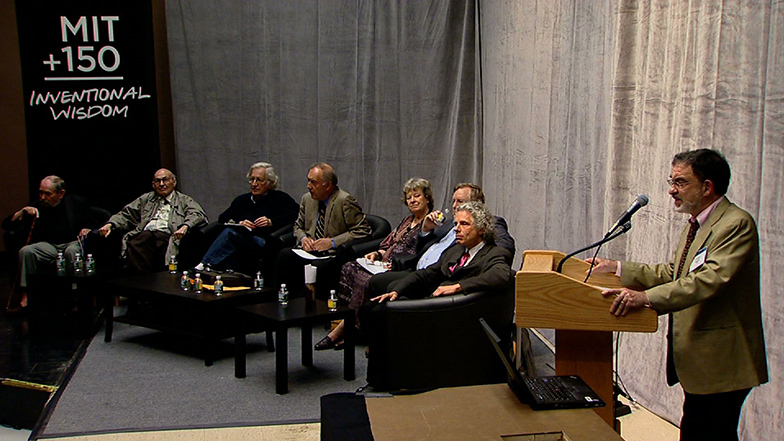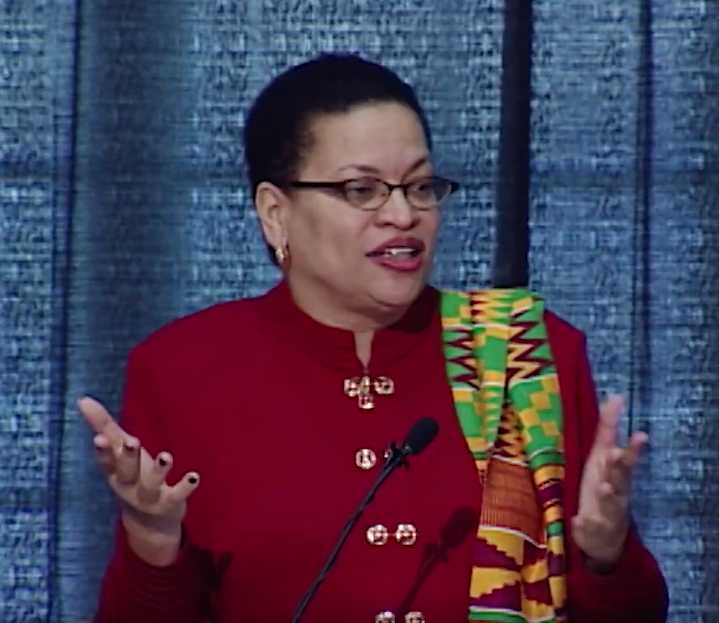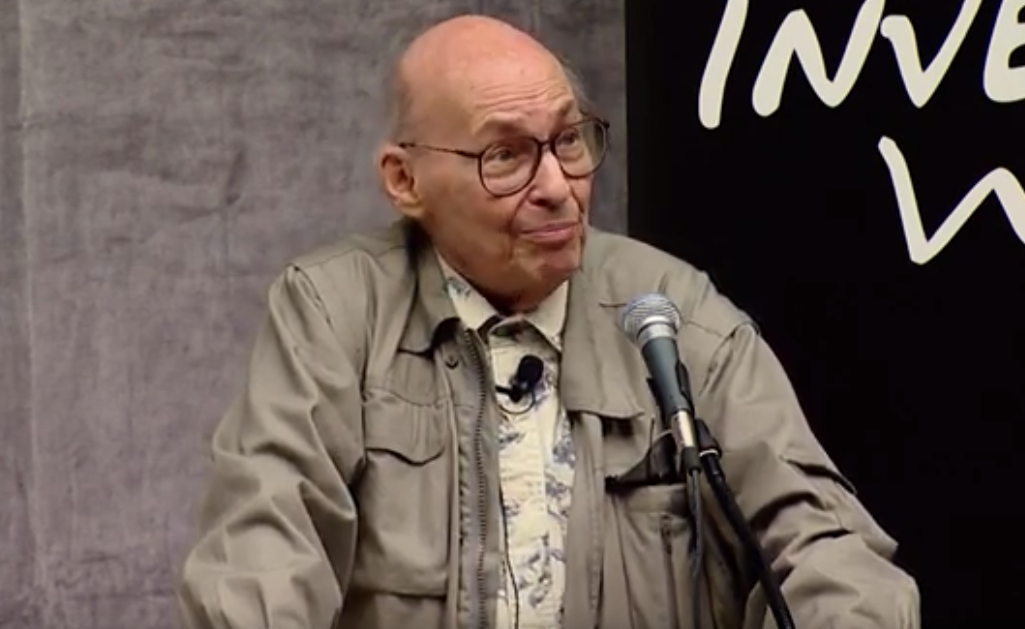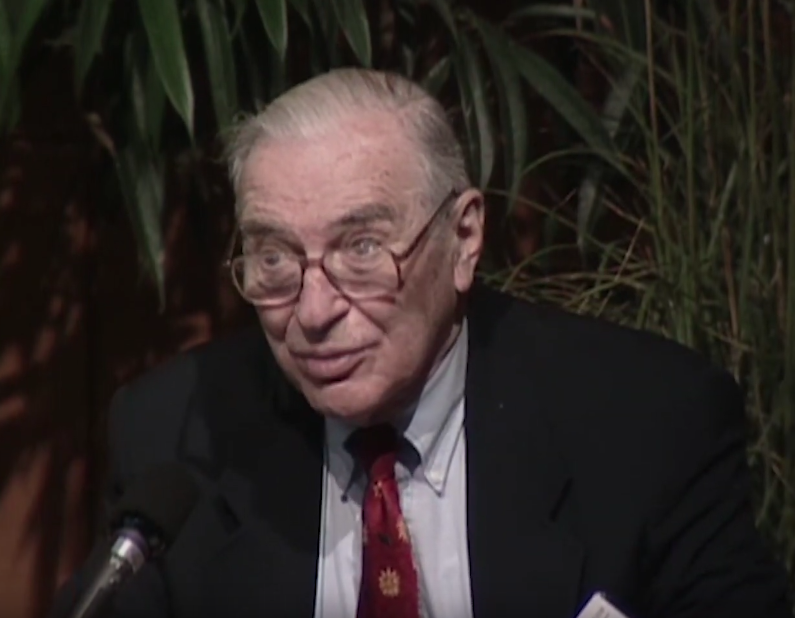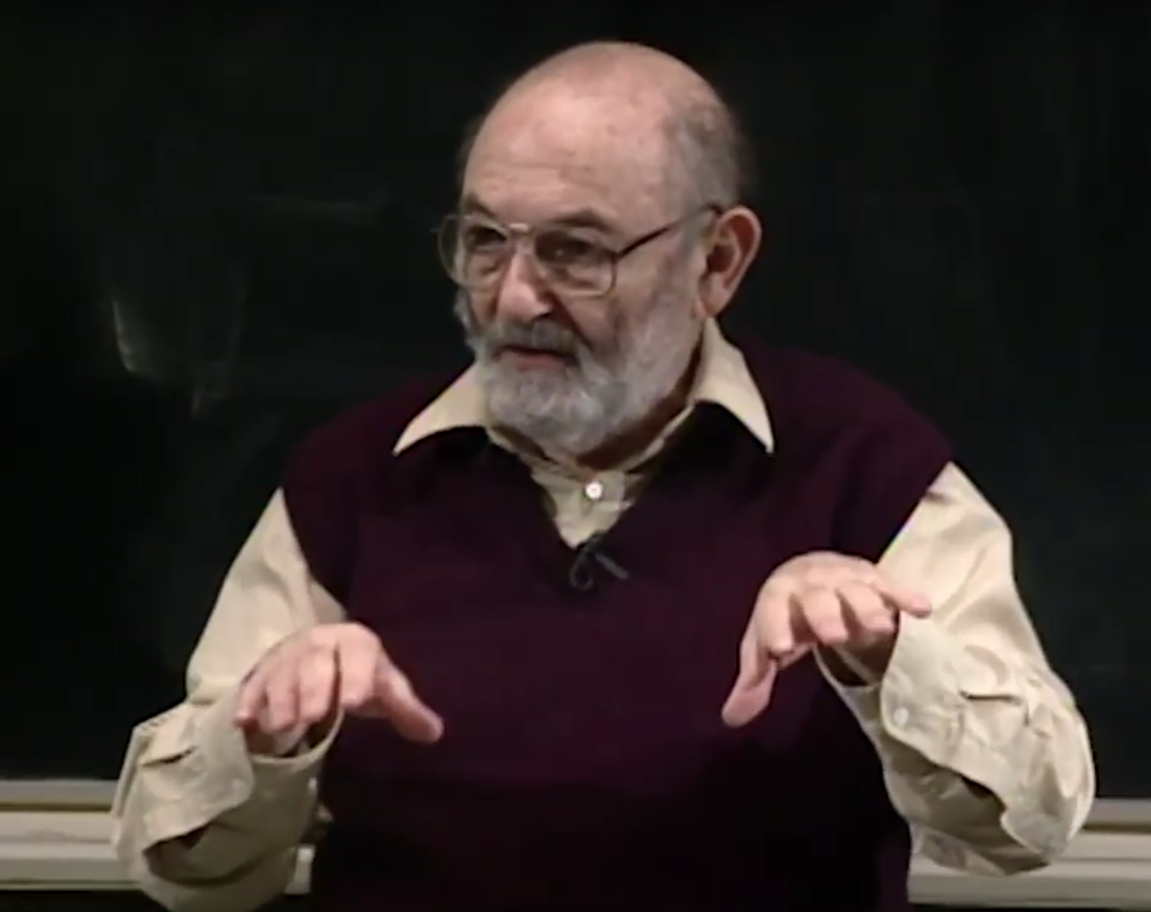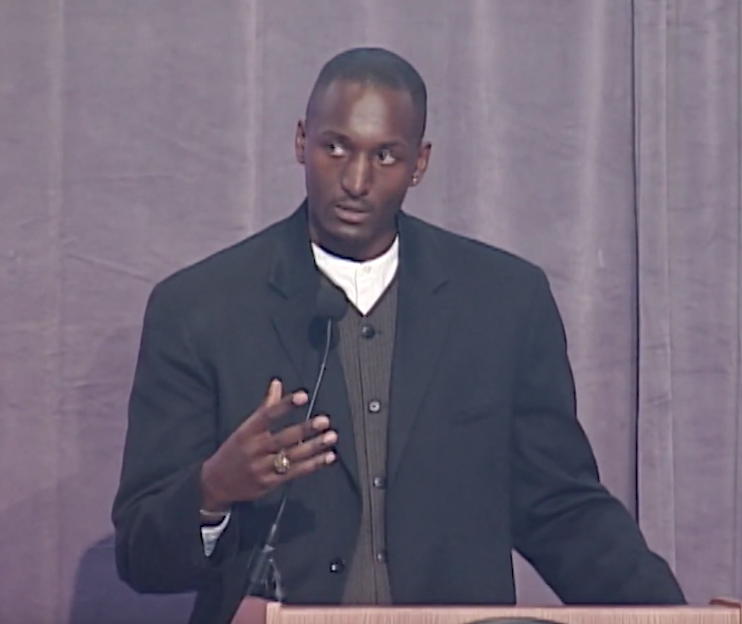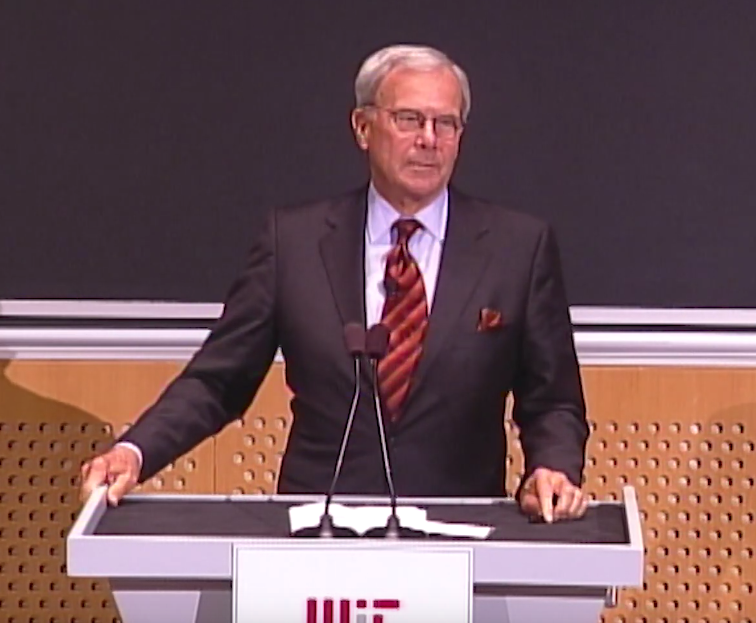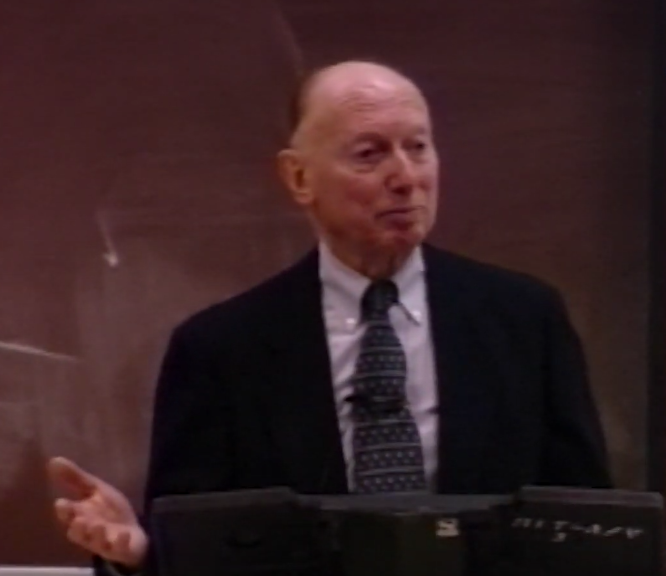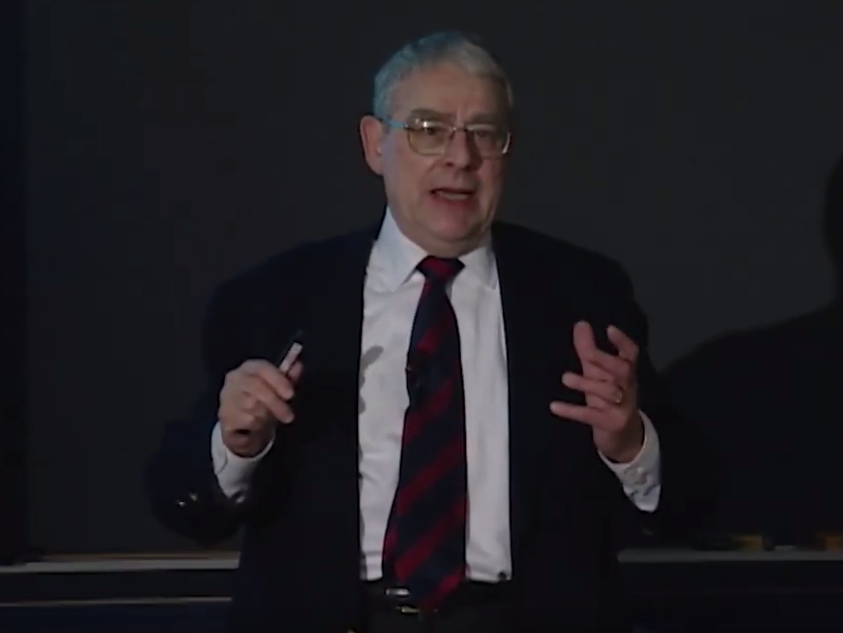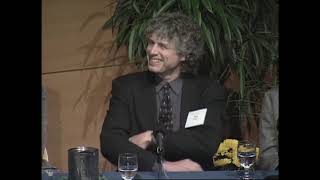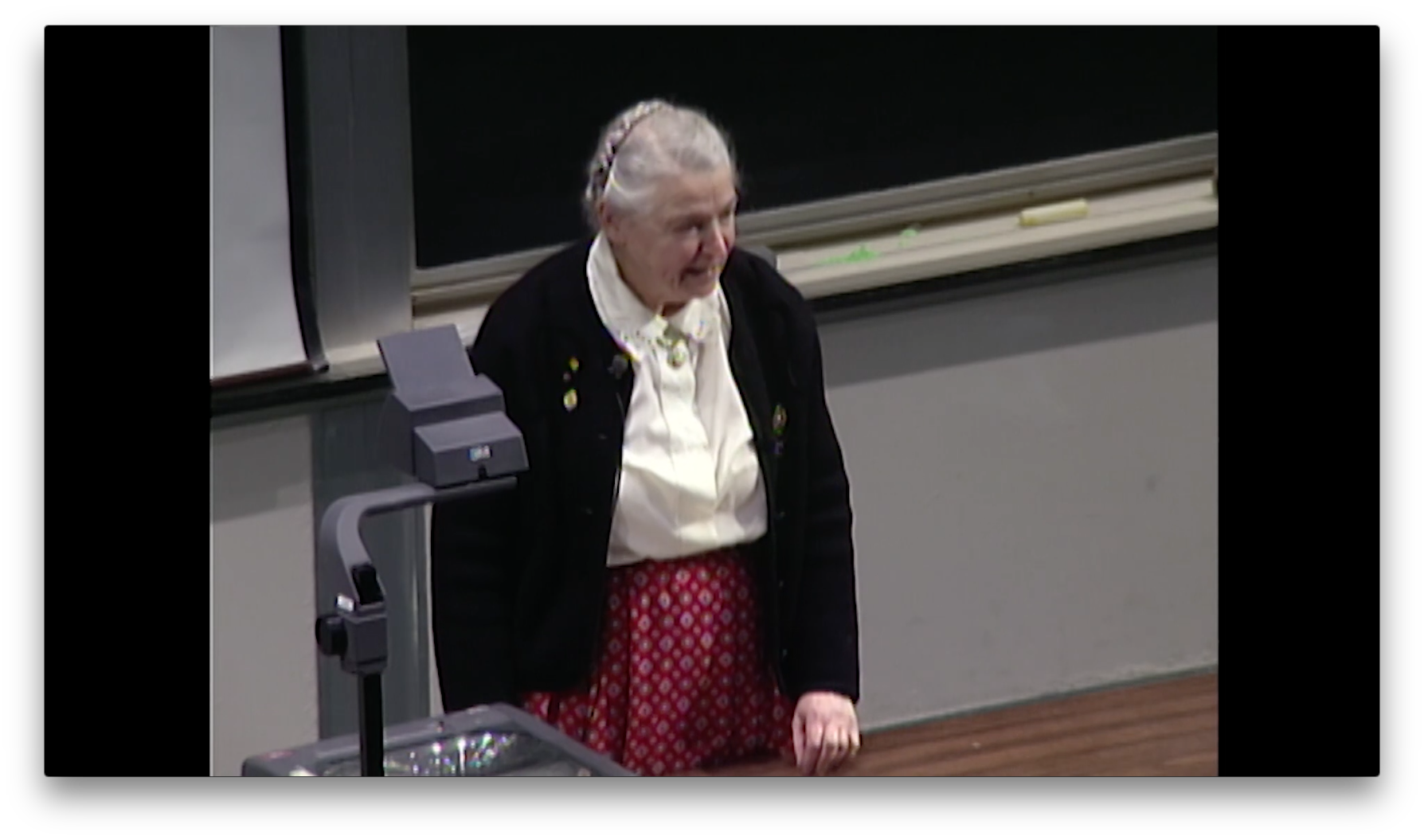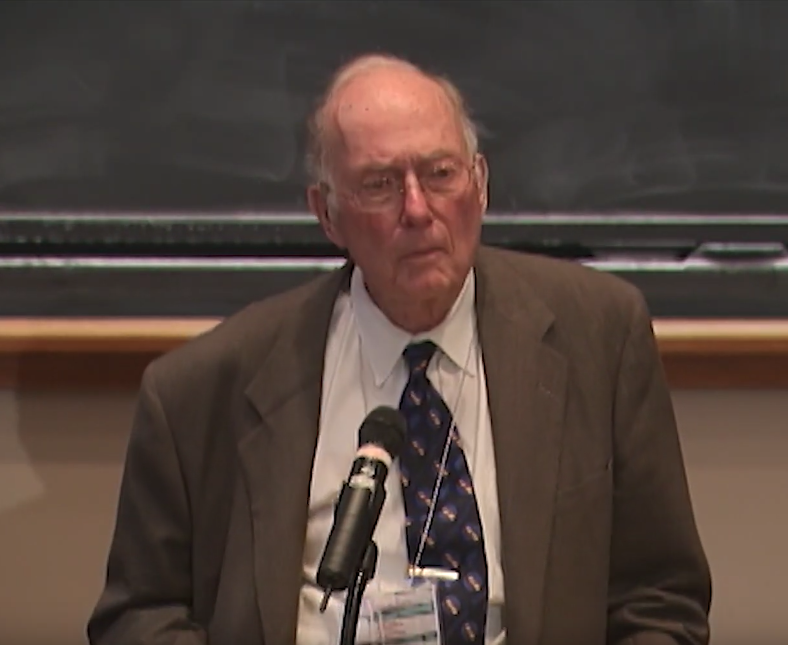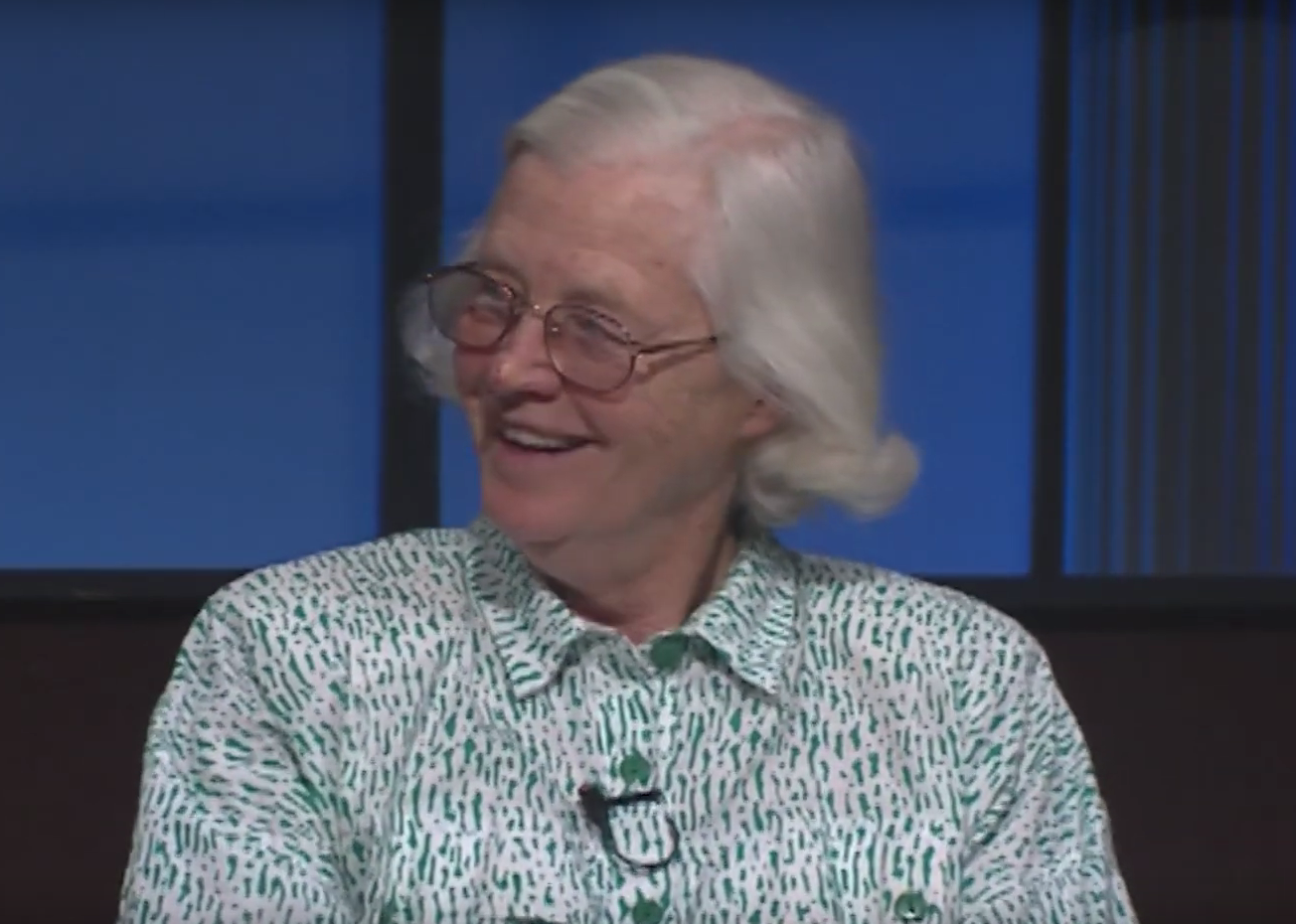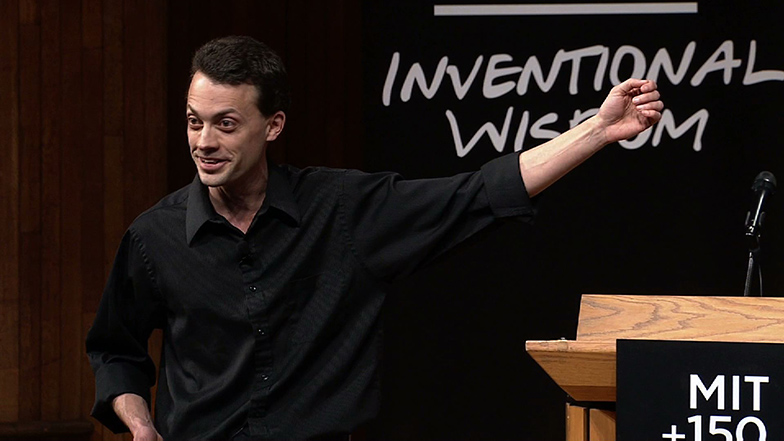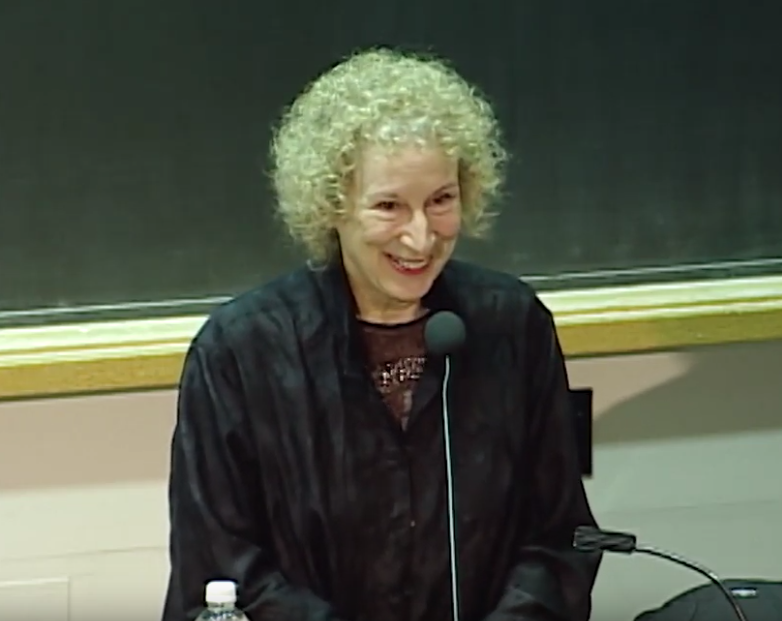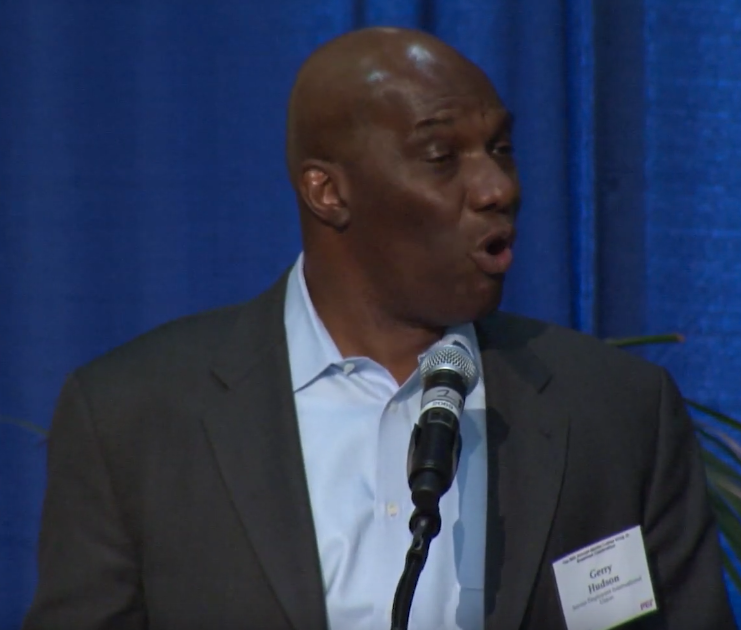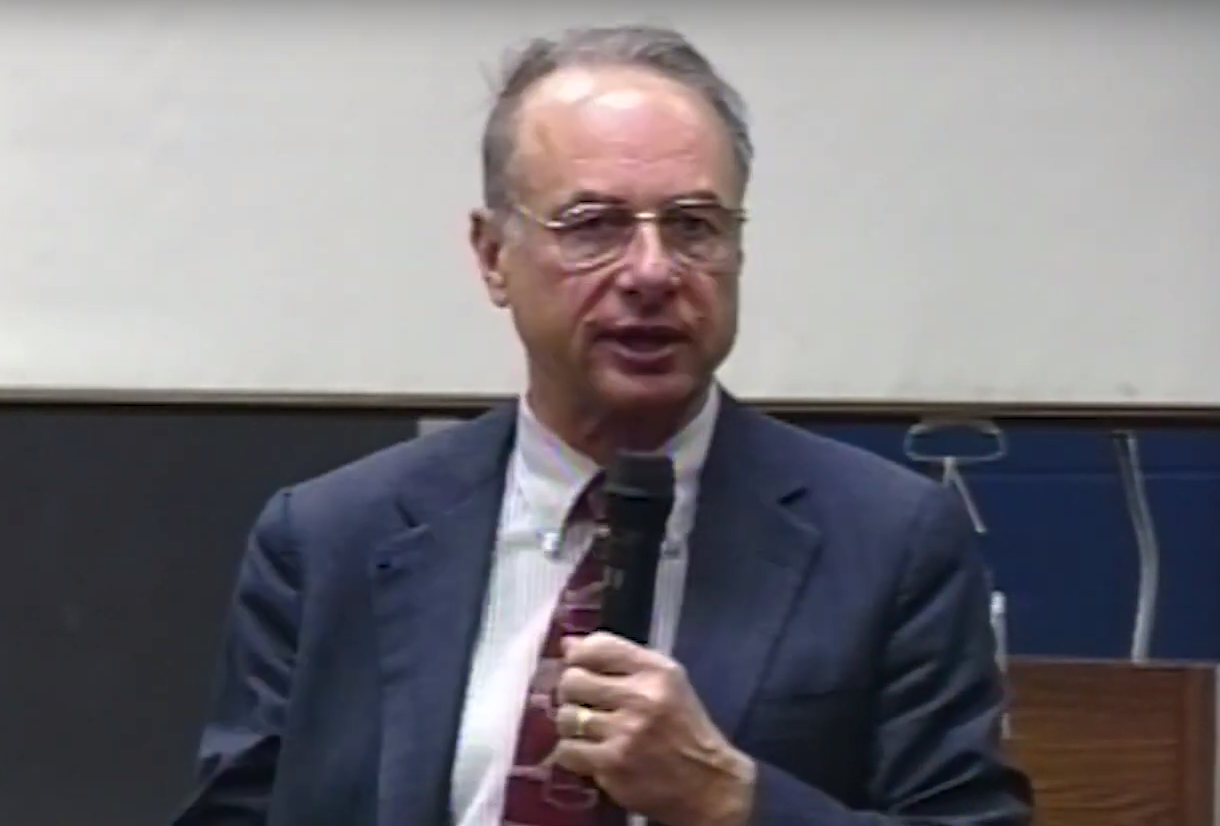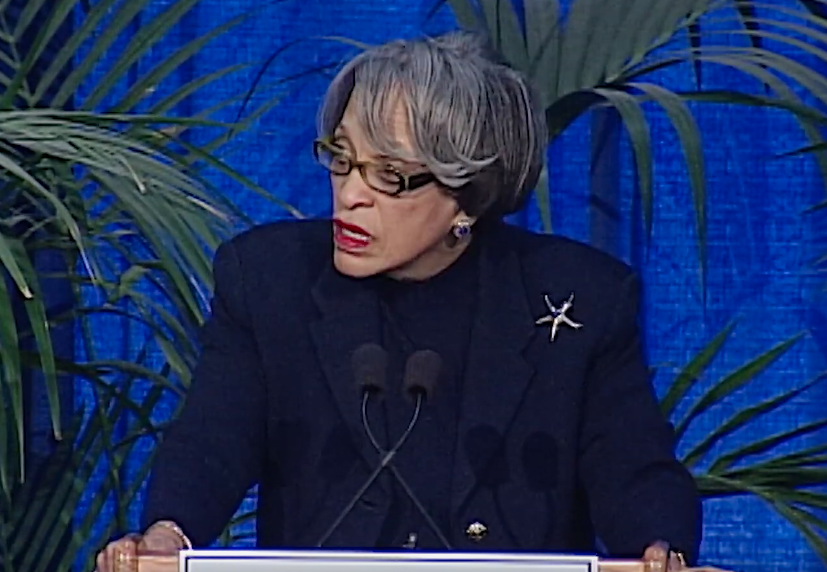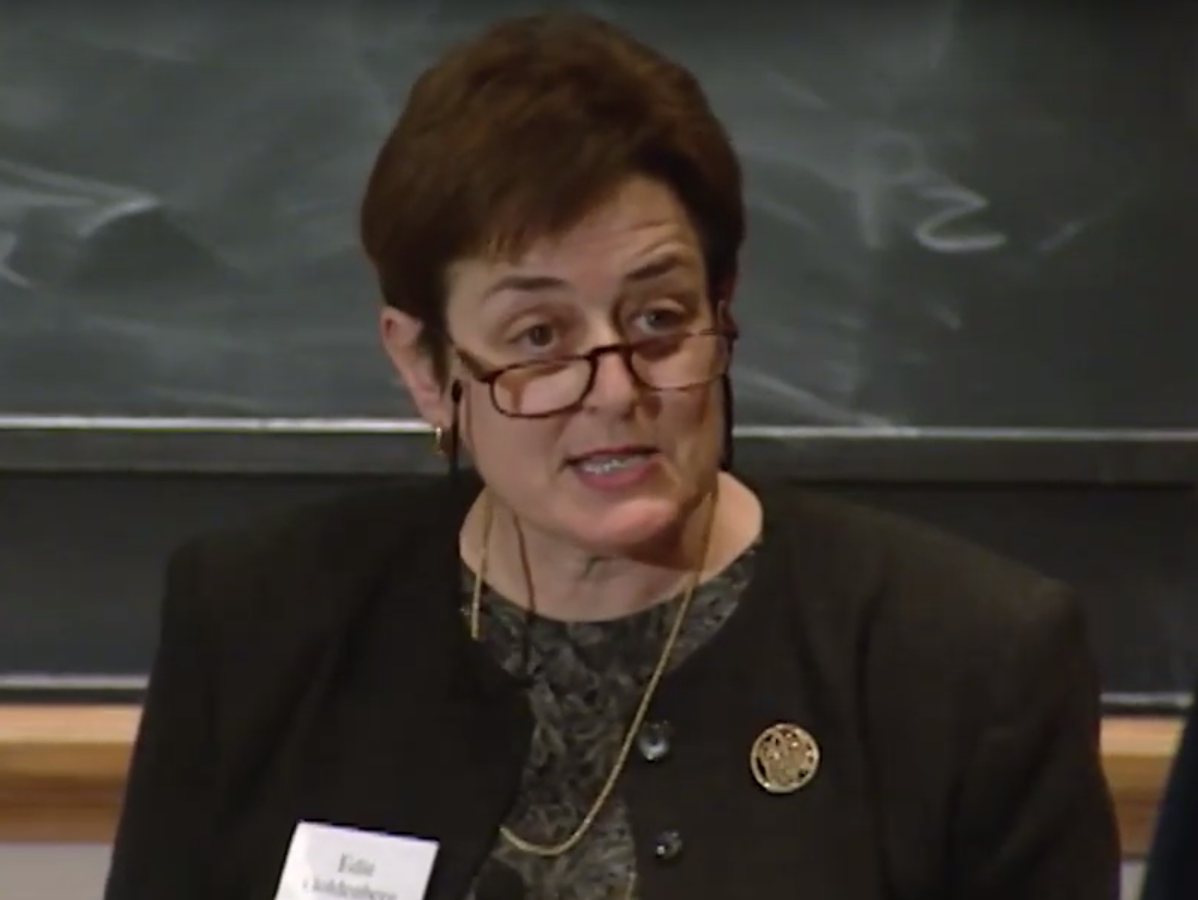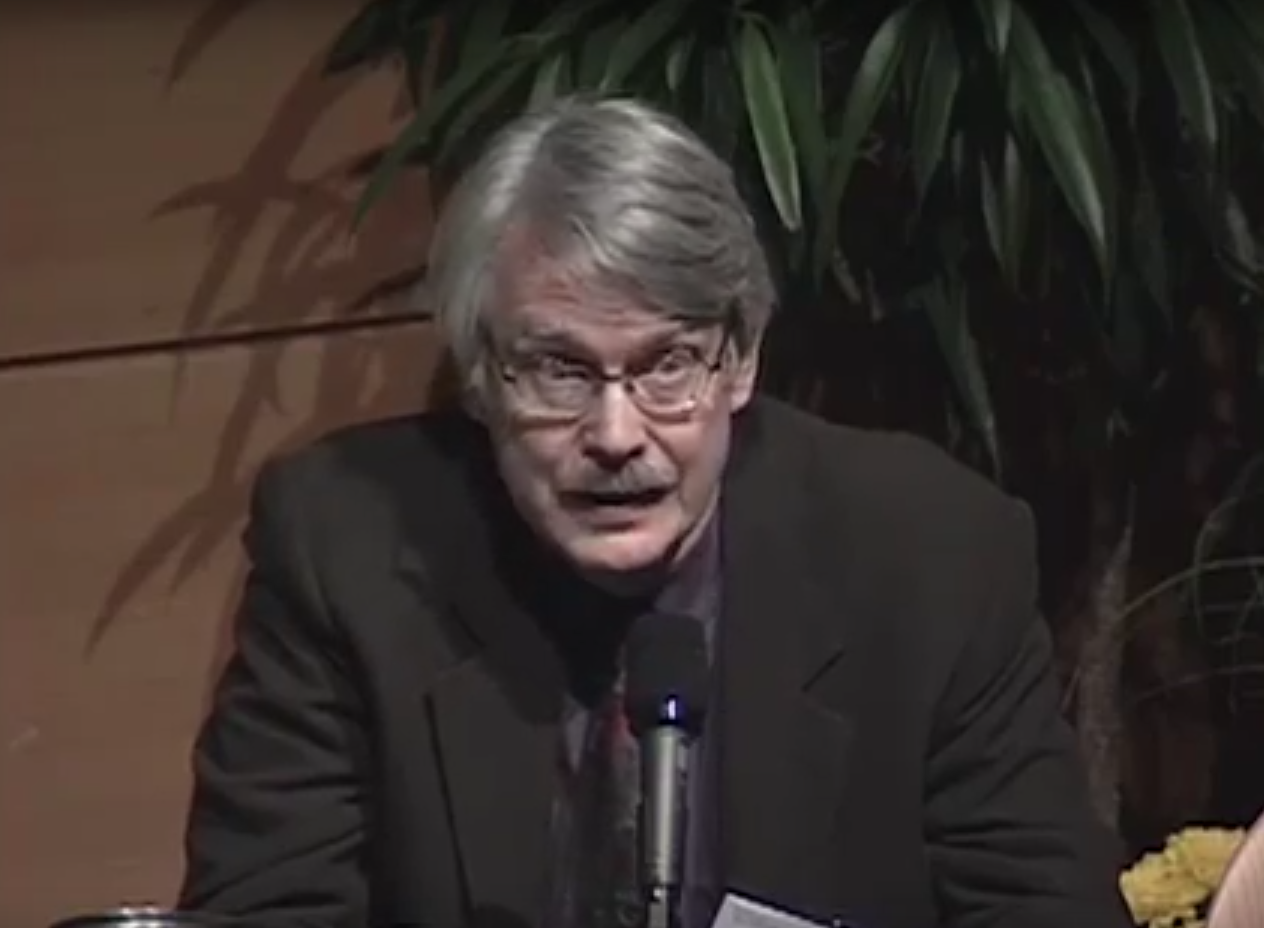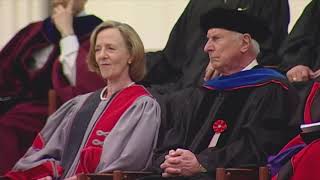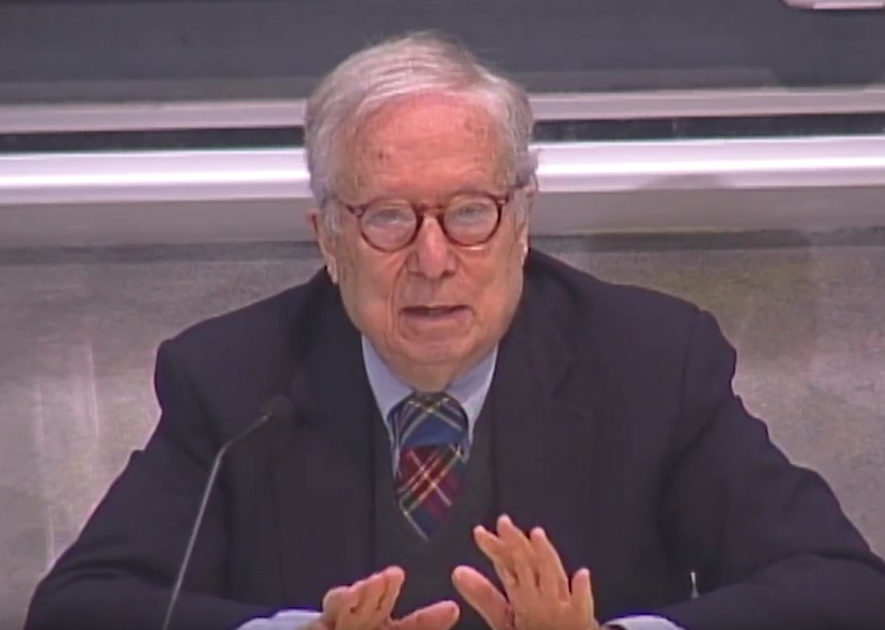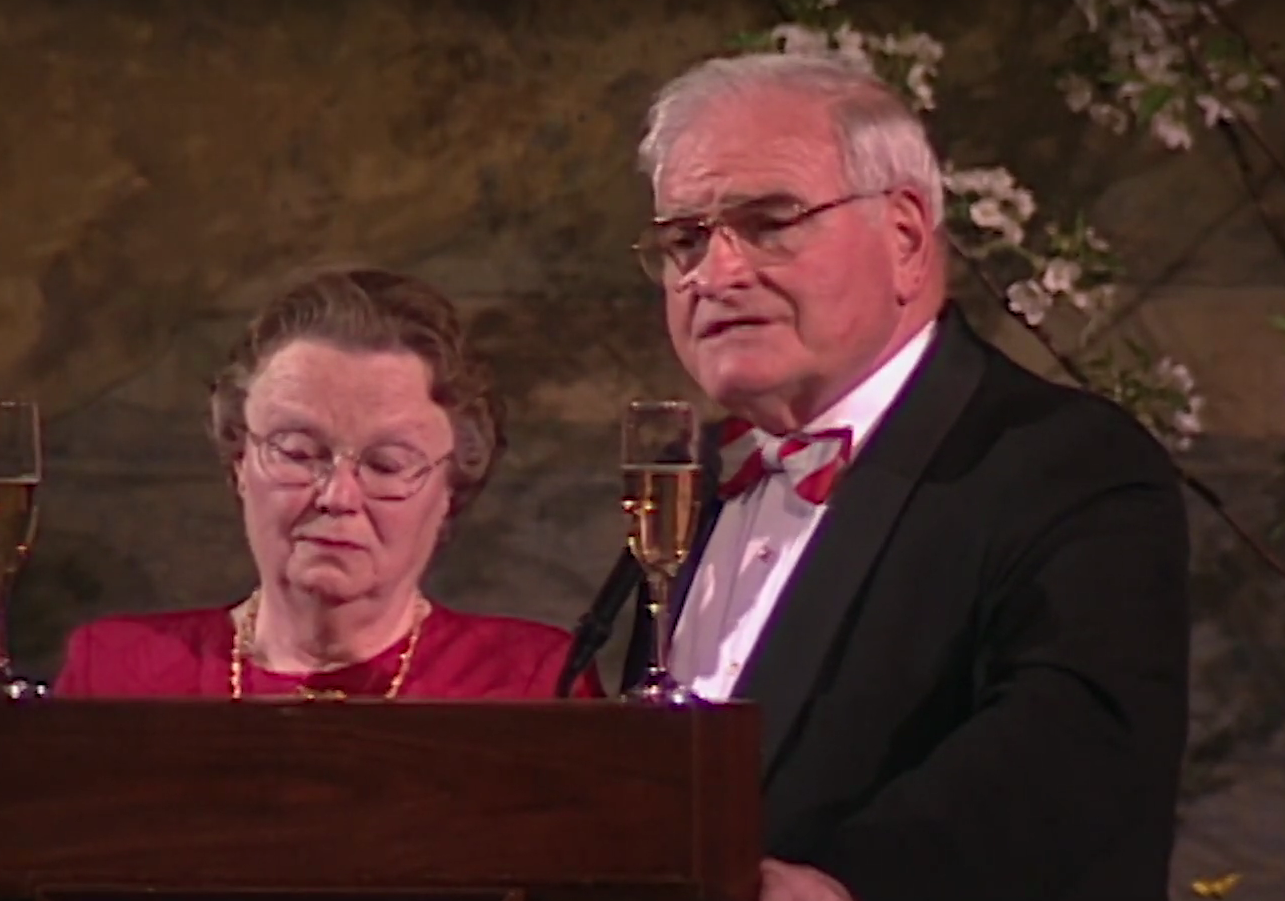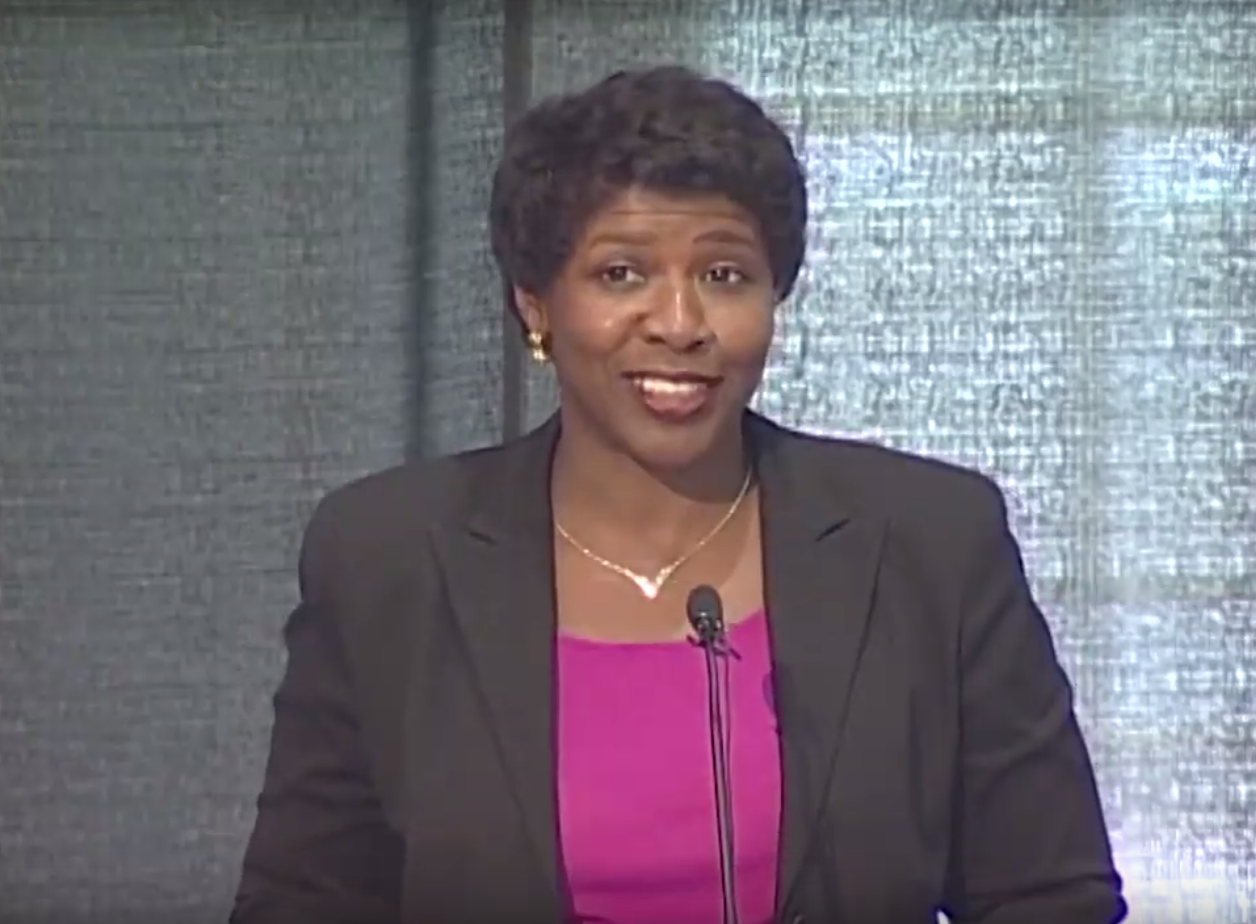Raymond S. Stata - 2010 MIT Commencement Address
[INSTRUMENTAL MUSIC]
MEAD: I am pleased to welcome to the stage the Honorable David Marr, Mayor of the City of Cambridge. Welcome, Mayor.
[APPLAUSE]
And I'm equally delighted to welcome to these exercises the distinguished members of our 50th reunion class, the great class of 1960.
[APPLAUSE]
It's now my honor to introduce our commencement speaker, Ray Stata, class of 1957. Ray received his SB and SM degrees in electrical engineering from MIT. A pioneer in the semiconductor industry, Ray co-founded Analog Devices in 1965. His entrepreneurial spirit thrived, and he went on to found Stata Venture Partners to provide venture capital to other tech startups. He was also instrumental in the founding of the Mass High Tech Council.
His achievements have earned him numerous recognitions-- member of the National Academy of Engineering, the American Academy of Arts and Sciences, a recipient of the IEEE Founders Medal, and many honorary degrees. But perhaps a man like Ray is best measured by those qualities instilled in him in Pennsylvania, where he grew up-- integrity, trust, honesty, and a strong work ethic-- core strengths that define his life and enabled his success.
Now, Ray's passion may very well be centered in engineering and entrepreneurship, but he's always been committed to his alma mater and to strengthening this educational community. Since his election to the MIT Corporation in 1984, Ray has served as one of its strongest leaders. He and his wife, Maria, have been enormously important, not only in helping to build MIT his infrastructure-- just in case you recognize the name at the Status Center-- but also in building education excellence at MIT. We are deeply grateful for their deep and continuing commitment to MIT.
So ladies and gentlemen, distinguished guests, graduates, and graduates to be, may I present Ray Stata.
[APPLAUSE]
RAY STATA: Thank you, Dana, and good morning everyone, and congratulations. You should be brimming with pride this morning. You have earned a degree from the world's most prestigious university focused on science and engineering. You have mastered MIT's unique brand of learning and doing, which will distinguish you throughout your career. And congratulations, as well, to your friends and family, who supported you and encouraged you along the way. Your satisfaction and happiness in life depend on the choices you make and on the principles and values which guide them. So far, your choices have served you extremely well. As a fellow nerd, I'm honored to share with you some of my experiences and some of the principles and values, which have worked well for me.
As MIT graduates, we are all innovators and entrepreneurs at heart. We search for opportunities to do things better, to make things happen, and to change the world. In my case, I also had a strong desire to be in control of my destiny. So to satisfy this need, I aspired to someday start my own company. With this end in mind, shortly after graduation, I went to work for Hewlett-Packard. Hewlett-Packard, for me, was like a mini-MBA, where I learned the basics of business. But more importantly, I learned from Hewlett-Packard that commitment to the welfare of employees and to the development of their full potential are the cornerstones on which successful companies are built.
You sometimes don't know where the paths you take will lead. When I was about 27, one day in Harvard Square I bumped into Matthew Lauber, an acquaintance from my student's days. Matt was looking for a roommate. So we ended up not only sharing an apartment, but also three years later we, together, co-founded Analog Devices. Of course, we had no idea that Analog Devices would become a multi-billion dollar company and a leader in an important segment of the semiconductor industry.
We started by carving out a small niche, and then step by step we extended our core competencies and built on our success. Analog's business strategy focused on opportunities where we could achieve and sustain leadership. Our mantra was, market leadership through technical innovation. Being number one not only produces superior business results-- it also engenders a sense of pride and satisfaction and stimulates your competitive instincts to stay ahead. So don't ever give up on your ambition to be the best at whatever you do. It's more rewarding, and it's also more fun.
We quickly discovered that you can't be an innovative company unless you have great innovators. So at Analog, rather than sidetracking our best engineers into management, we created a parallel ladder to encourage them to continue their technical careers. We not only provided compensation that was comparable to the management track, but we also gave engineers a voice in influencing business strategy, investment decisions, organizational policies. I encouraged managers to treat engineers as full business partners. The highest rung on our technical ladder was reserved for our most distinguished engineers, who we called Analog Devices Fellows. Fellows at Analog are important people whose views are respected in value. Don't let organizational hierarchy obscure the people who are most important to your success.
Another important way to unlock innovation is to free people to do their best work. In building the organization, I found that a lot of talented people were just like me. They wanted the freedom to decide what to do and how to do it. So I shaped a culture which gave employees broad latitude to make decisions. We didn't have a lot of rules and controls; we depended more on developing people's judgment. We align the goals of the company and the goals of employees, and we encouraged employees to think about the company's success as a prerequisite to their own.
Empowering people to make decisions and to take ownership is a powerful motivator. This was a key factor in our success. In effect, we built our market position on a culture of innovation. But then the question becomes, how do you maintain your lead? Andy Grove, the former CEO of Intel, wrote a book in which he proclaimed, "Only the paranoid survive." Beware of S curves, because everything has life cycles-- technologies, products, markets, and companies. To sustain innovation, you can't abandon your appetite for risk.
When Analog Devices started, linear integrated circuits or so-called ICs, had not yet been invented. We manufactured our operational amplifiers and converters by manually assembling discrete transistors and other components on printed circuit boards. Just two years after we opened our doors, the industry's first integrated circuit operational amplifiers were introduced. Our hand-tweaked amplifiers consistently outperformed these new devices, but each year they got better, and they were an order of magnitude cheaper. So I concluded that, to avoid becoming a victim of our own S curve, we had to take bold steps to learn how to design and manufacture ICs, or our success would be short lived.
Everyone-- and I mean, everyone-- in the company disagreed. They said that integrated circuits would never meet the performance requirements of our customers; that we shouldn't risk a rapidly growing and very profitable business; that we didn't have the financial resources to compete with a large semiconductor companies. And beside that, nobody in the company knew anything about semiconductor technology. So the board said no. It was too risky.
For me, the risk of inaction was even greater, so I made an offer the board couldn't refuse. I offered to personally fund a startup company to design and manufacture ICs, which Analog would sell. And if this venture succeeded, Analog would have the option to acquire this company with no gain for my investment. On the other hand, if it failed, I would personally suffer the loss.
There are a lot of people who thought I was very foolish, but it worked. Three years later, Analog acquired the startup and got serious about semiconductor technology. We figured out ways to manufacture ICs that achieved performance even better than our hand-assembled products and at a fraction of the cost. This breakthrough-innovation established Analog Devices as a leader in high performance linear integrated circuits, a position we still hold today.
The point is, entrepreneurs have to be optimistic and relentless in believing that they will discover or create the missing pieces even when they're not sure how. Courage and the capacity to take risks are fundamental to entrepreneurship. If you're not stepping outside your comfort zone to take calculated risks, chances are you will not be exploiting your full potential. You can't play it safe and win.
Don't be afraid to fail or make mistakes-- chances are you'll do this many times. And failure is not always bad. In fact, people don't really learn by doing things right. They learn by making mistakes and then reflecting on what went wrong. My wife, Maria, says that I'm frequently wrong but never in doubt. Now, I'm not too sure about the frequently part. But for sure, I've made my share of mistakes.
Perhaps my biggest failure was Analog Devices Enterprises, a venture investment fund that I set up within the company. Nothing came of it. We lost a lot of money. The mistake I made was to allow our investments to stray too far from Analog's core competencies. In the delicate balance between focus and diversification, I stepped over the line. I certainly learned a lot from that experience. But if success for an entrepreneur depends on cultivating perpetual innovation, it also depends on how you work with others, how much you demand of yourself, and how much you believe in what you're doing.
For most of you, your accomplishments will be magnified by productive collaborations and by your ability to lead teams and organizations. To those ends, I found you could be most effective by building trustful relationships. You earn trust through honesty-- adhering to the facts; integrity-- living by principles; sincerity-- meaning what you say; reliability-- meeting your commitments; and competence-- knowing what you're doing. As high achievers in the real world, you will soon discover, as I did, that you can't substitute working smarter for working harder. To excel at the top of your game you have to do both, so be prepared to continue to drink from the fire hose as a way of life.
The most important advice I can give you is this. If ever you find that you're not passionate and excited about what you're doing, then start searching for an opportunity where you will be. Nothing is more important and gratifying than getting up in the morning with an eagerness to work and accomplish something important. Set high standards for what you expect from your work, be courageous in stepping into the unknown, and think big about what you can accomplish.
If history is any guide, as MIT graduates, 40% of you will have played an important role in an early-stage startup venture by the time you reach age 45. A recent Sloan study reported that cumulatively, 122,000 living MIT graduates have founded more than 25,000 companies which are still in business today, and which collectively generate $2 trillion in sales, and employ 3.3 million people. And this does not include the companies that were acquired. The fact is that the spirit of innovation and entrepreneurship applies not just to business, engineering, and science, but to every aspect of work and life.
You are all well-equipped to challenge the status quo and to bring about dramatic changes and improvements in whatever you choose to do. And you will also find opportunities as volunteers-- to apply your knowledge and skills to solve important societal problems. From my involvement in K through 12 education, I found that public institutions are the ones most in need of intervention from iconoclasts, like us, to engineer desperately needed change and improvements.
MIT has played a very important role in my life. As a hayseed from a small farm community, I was the first in my family to attend college. Without MIT's need-blind admissions, I would have not had access to the Institute's unique education experience. As soon as we could afford it, Marie and I made a gift to not only repay MIT for the significant investment it made me, but also to repay a debt of gratitude for what MIT had enabled me to do in my career. Beyond what I gained personally, as I became more involved, I better understood MIT's enormous impact on the world-- an impact that I'm convinced will become even more important in this complicated century.
With its unmatched depth and breadth of research, and its culture of interdisciplinary collaboration, MIT is uniquely positioned to tackle the world's biggest problems-- energy, environmental sustainability, poverty, human disease-- just to name a few. Marie and I believe so strongly in MIT's mission, and in the people of MIT, that we've actively looked for ways to help MIT do what it does best. For example, as a member of the Electrical Engineering and Computer Science Visiting Committee, I learned that there was an urgent need to better integrate these disciplines by relocating the computer science side of the department from across the tracks in Tech Square to campus, so Marie and I offered to make a lead gift to catalyze this important decision.
Initially, the new facility was conceived as just another box on Vassar Street. But once started, the imagination of the faculty and Institute leaders were unleashed, and the project took on a bolder vision than just a new home for computer science. It quickly became an inspiring space for students and faculty from across the campus to play, to hang out, to eat, to exercise, and even dance-- a place to facilitate human interaction and to germinate new ideas. The center stands today as a constant reminder that MIT is about breaking with tradition and exploring new frontiers.
There are many, many examples, large and small, where MIT graduates got involved, saw a need, and became part of the solution. So I urge you to stay involved with MIT and to search for ways where you can make a difference. And when your time comes, to give back. Like its peer universities, MIT very much depends on the work, the wisdom, and the wealth of its graduates to sustain its greatness. And equally important, as products of MIT's is education, it is through your accomplishments that you MIT's contributions to society are amplified.
You are entering a troubled world that is both in crisis and in transition. In crisis due to the lapse of judgment and moral values of business and political leaders, which triggered a deep and far reaching financial meltdown. In transition, due to China, Russia, and India ending decades of isolation, and releasing three billion people into the free market economy. Coping with the stresses on financial and natural resources from an aging and growing global population, with increasing expectations for a better life, presents seemingly insurmountable challenges.
But when I reflect on the ingenuity of the human race and on the truly amazing things which have been accomplished just in my lifetime, I'm optimistic that your generation will not only find solutions to today's challenges, but you will also discover new opportunities for progress in a more integrated and inclusive world. Remember, as MIT graduates you are the best the world has to offer. With technology playing an ever-increasing role, you have a special responsibility to help create a future where every person on this planet can have the hope and the prospects for a better life.
So my charge to you this morning is, don't play it safe, because the risk of inaction is just too great. Date to be part of the solution. Thank you, and best wishes for a happy life.
[APPLAUSE]
